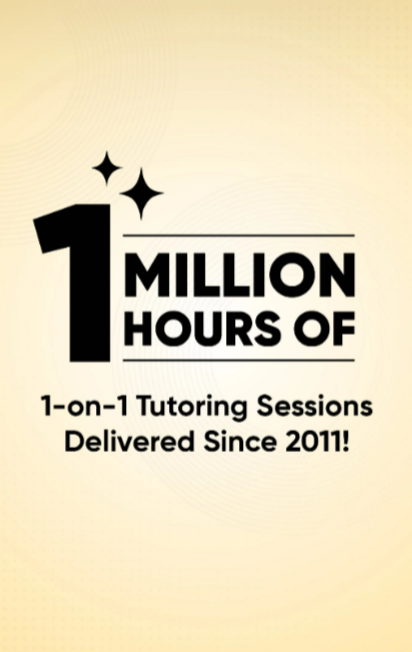How to Choose a Tutor Who Can Teach Pre-Algebra and Related Topics
For many children, pre-algebra marks a critical turning point in their academic journey. It is the stage where math transforms from simple arithmetic into abstract reasoning, introducing variables, equations, inequalities, fractions, decimals, and problem-solving strategies that lay the foundation for algebra and beyond. For some students, this shift comes naturally; for others, it can be intimidating. If your child struggles with math or simply wants to excel, a skilled pre-algebra tutor can make the difference between frustration and confidence. But finding the right tutor isn’t as simple as picking the first name online. Here’s a detailed guide to help parents and students make the best choice.

Understand Your Child’s Learning Style and Needs
Before searching for a tutor, it’s crucial to understand your child’s unique learning style and academic challenges. Are they visual learners who grasp concepts better with diagrams and charts? Do they need hands-on, interactive examples to understand problem-solving? Or perhaps they prefer verbal explanations and step-by-step reasoning?
Identifying your child’s learning style will help you choose a tutor who can adapt their teaching approach accordingly. It’s also important to assess where your child struggles. Do they find fractions and decimals confusing, or do they get stuck when working with equations and inequalities? Maybe they need help connecting abstract concepts to real-world examples. By pinpointing the exact areas of difficulty, you can find a tutor whose expertise aligns with your child’s needs.
Prioritize Subject Expertise
Pre-algebra is more than just arithmetic with letters. It introduces children to concepts that form the backbone of algebra, geometry, and higher-level mathematics. Therefore, selecting a tutor with strong subject knowledge is essential. Tutors who have taught middle school math, high school algebra, or standardized test preparation (such as the SAT or ACT) often have a deeper understanding of the logical steps students need to succeed.
Look for a tutor who can explain not just how to solve a problem, but why a particular method works. A strong tutor can help students connect patterns, understand the reasoning behind formulas, and develop critical thinking skills that extend beyond a single homework assignment.
Value Teaching Experience and Patience
Experience is more than a bullet point on a résumé—it can be a deciding factor in how effectively a tutor can help your child. Experienced tutors have worked with students of different ages, abilities, and learning styles. They know common stumbling blocks in pre-algebra and can anticipate where your child might struggle next.
Equally important is patience. Pre-algebra introduces abstract concepts that can be confusing at first. A tutor who gets frustrated easily or rushes through lessons can make your child feel anxious or discouraged. A patient tutor will encourage questions, revisit difficult topics, and celebrate small victories along the way, fostering confidence and a positive attitude toward math.
Assess Communication and Interpersonal Skills
Even a highly knowledgeable tutor won’t be effective if they can’t communicate clearly. When interviewing potential tutors, pay close attention to how they explain concepts. Do they use language your child can understand? Are they capable of breaking down complex problems into manageable steps?
Beyond technical skill, the tutor’s ability to build rapport with your child matters. Children learn best when they feel supported and understood. A tutor who is approachable, encouraging, and genuinely interested in your child’s progress can transform a stressful subject into an enjoyable challenge.
Consider Teaching Methods and Flexibility
Every child learns differently, and a one-size-fits-all approach rarely works. Some students thrive on structured worksheets and repetitive practice; others engage more with interactive lessons, real-world applications, or problem-solving games.
Ask potential tutors how they tailor their lessons to meet individual needs. Do they assess progress regularly? Do they adjust the pace based on your child’s comprehension? A flexible tutor can adapt strategies mid-session if something isn’t working, ensuring that your child remains engaged and motivated.
Review Credentials and References
While credentials alone don’t guarantee effective teaching, they provide an initial benchmark of competence. Tutors with degrees in mathematics, education, or related fields often have both subject mastery and formal training in teaching techniques.
Equally useful are references and reviews from other families. Positive feedback from parents and students can give insight into a tutor’s reliability, teaching style, and ability to connect with children. Don’t hesitate to ask for examples of student progress, particularly if your child is preparing for standardized tests or more advanced math courses.
Align Schedules and Availability
Consistency is key in math tutoring. Learning pre-algebra concepts requires regular practice and reinforcement. Therefore, it’s essential to find a tutor whose schedule aligns with your child’s routine.
Consider your child’s energy levels and school commitments. Some children do better with morning sessions, while others may focus better in the afternoons or early evenings. Regular, shorter sessions are often more effective than infrequent, longer lessons, as they allow your child to build understanding gradually without feeling overwhelmed.
Set Goals and Monitor Progress
A strong tutoring relationship is built on clear goals. Sit down with the tutor to define what success looks like—whether it’s mastering specific pre-algebra concepts, improving test scores, or gaining confidence in problem-solving.
Good tutors track progress through quizzes, homework reviews, or discussion-based assessments. Regular updates allow parents to see tangible improvements and give children a sense of accomplishment. Celebrating milestones, no matter how small, helps maintain motivation and reinforces a positive learning experience.
Consider Cost and Commitment
Tutoring can be a significant investment, so it’s important to consider cost and commitment before making a decision. Hourly rates for pre-algebra tutors vary depending on experience, location, and level of specialization. Keep in mind that the cheapest option isn’t always the most effective, and a higher rate may be justified if the tutor provides measurable results and a customized learning plan.
Also, clarify expectations regarding the length and frequency of sessions, cancellation policies, and any additional materials or resources. A clear agreement upfront helps prevent misunderstandings and ensures a smooth, productive tutoring experience.
Make It a Partnership
Finally, remember that tutoring works best as a partnership between parents, children, and the tutor. Encourage your child to share their thoughts about the sessions—what’s helping, what’s confusing, and what they enjoy. Communicate regularly with the tutor to stay informed about progress and challenges. This collaborative approach creates a supportive environment that extends beyond the tutoring sessions, reinforcing your child’s growth in math and self-confidence.
Conclusion
Choosing a pre-algebra tutor is more than hiring someone to solve equations. It’s about finding a mentor who can guide your child through a pivotal stage in their education, transforming confusion into clarity, and building a strong foundation for future math success. By carefully considering your child’s learning style, the tutor’s expertise and experience, communication skills, teaching methods, and progress tracking, you can make a choice that empowers your child—not just in pre-algebra, but in all mathematical endeavors.
With the right support, pre-algebra can become an opportunity for curiosity, confidence, and critical thinking. The right tutor doesn’t just teach math—they inspire a lifelong appreciation for problem-solving, logic, and learning.
 United States
United States United Kingdom
United Kingdom Australia
Australia Canada
Canada Middle East
Middle East Europe
Europe